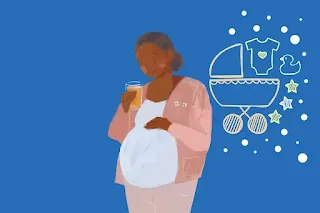The Pregnancy Journey
Second Trimester Of Pregnancy
Third Trimester Of Pregnancy
The Fourth Trimester: Life After Birth
Honestly, people kinda gloss over the whole postpartum thing—like, everyone’s obsessed with pregnancy, but what about the “fourth trimester?” That bit is wild. Your body’s basically trying to remember what normal feels like, hormones are throwing wild parties, and suddenly there’s this tiny human who needs you 24/7. Fun, right?
Physically? Depends on how you delivered. Vaginal birth? Yeah, you might be waddling for a bit, maybe dealing with stitches or just general soreness that makes sitting feel like a dare. C-section? That’s a whole different ball game—major surgery, so don’t expect to be running marathons anytime soon.
And breastfeeding? Yikes. People act like it’s this magical, natural thing, but honestly, it’s more like a weird science experiment at first. Milk’s coming in, baby’s trying to figure out what to do, you’re Googling “latch techniques” at 3AM. It can be brutal.
Emotionally, it’s a rollercoaster. Some folks are riding high on baby snuggles, others are straight-up exhausted, and a lot of people get hit with the “baby blues.” Sometimes it’s more than that—postpartum depression or anxiety can sneak up and totally sideswipe you. It’s no joke.
Bottom line? Don’t try to solo this stage. Lean on your partner, your family, your friends—heck, even random internet forums if you need to. Compassion and a good support system are basically survival gear during this whole wild ride.
Reflections on the Journey
Man, looking back on pregnancy? It’s a wild ride—seriously, no one really warns you just how much your world flips upside down. One minute you’re staring at a pee stick in total disbelief, maybe half laughing, half panicking, and then suddenly you’re counting down weeks, dealing with weird cravings (pickles and ice cream, anyone?), and wondering if your ankles will ever make a comeback.
Honestly, the emotional rollercoaster hits hard. Those first few months—ugh, morning sickness is a liar by the way, it’s more like all-day nausea. But then, outta nowhere, you feel that tiny kick and it’s like, whoa, there’s actually a human in there. Kinda freaky, kinda magical.
Your body becomes this science experiment—stretch marks, swollen feet, the whole deal. But weirdly, you start feeling proud of all the stuff your body can do. Like, “Damn, I’m basically building a person from scratch here.” Fatigue? Sure. Discomfort? Absolutely. But there’s this new kind of strength that pops up too, and you start noticing all the little ways your partner or friends step up to help. It’s sappy but true: you end up way more grateful for your crew.
And not gonna lie, some days are pure chaos—tears one minute, happy tears the next, snapping at people for breathing too loud. Patience gets a serious workout. But every pregnancy is its own weird, beautiful beast. Some folks breeze through, others have a tough time, but everyone comes out with a stash of stories and a new perspective.
In the end? It’s messy, it’s beautiful, it’s exhausting, and it changes you for good. That whole journey to motherhood thing? Yeah, it sticks with you.
CONCLUSION
Alright, let’s be real—pregnancy is wild. One minute you’re just living your life, and the next you’re Googling “is it normal to crave pickles at 2am?” Your body goes through all kinds of weird changes (hello, swollen ankles), your brain’s on a rollercoaster, and your heart? Yeah, it’s basically doing somersaults every time you feel a tiny kick. The whole thing’s this messy, beautiful mash-up of excitement, nerves, and, let’s be honest, a lot of snacks and bathroom breaks.
First trimester? You’re tired and maybe a little freaked out. By the time you hit the third, you’re counting down days and wondering if you’ll ever see your feet again. And yeah, it’s tough sometimes. But seriously, there’s nothing else like it. All those ups and downs somehow glue you and that little nugget together before you even meet. Sure, everyone’s experience is different, but at the end of the day, becoming a parent isn’t just a thing you do—it’s a total game-changer, the start of something huge.




